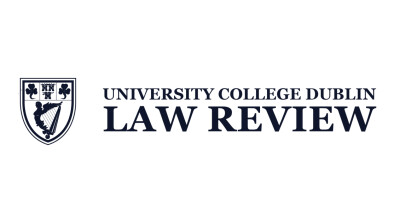Letter: Disabled legal professionals still aren’t seen as a possibility

Dear Editor,
The latest LSRA report has been published on pathways into the legal profession. Despite many welcome figures about increased diversity within legal education and early practice, there is still a gross lack of consideration for disabled people as legal practitioners.
The report itself states that recommendations have been made to increase disability awareness among students — but that seems to suggest that there is no expectation for students to see disabled people among their cohort.
The National Disability Authority, in its submission, states that “the Law Society and King’s Inns should consider what measures are needed to increase the number of students with disabilities in their courses”, while IHREC recommends “comprehensive training for solicitors and barristers on disability awareness and realisation of UNCRPD rights”.
The reference to the UNCRPD is welcomed, but there is little to no awareness of the UNCRPD outside of disability-specific contexts.
There are references to diversity scattered throughout the report, but by diversity it appears to suggest those from lower socio-economic backgrounds and not other diversity metrics such as disability.
If our only metric for diversity is less well off people entering our profession, how can we hope to get an overall picture of what the legal industry really looks like?
According to the ESRI and IHREC, disabled households spend the majority of their disposable income on disability-related expenses. Despite this, there are no disability-specific scholarships within either King’s Inns or the Law Society that could increase uptake in legal training for disabled people.
When the majority of disabled households are living below the poverty line, there’s no amount of ‘pulling yourself up by the bootstraps’ that can help you afford the astronomical fees attached to the legal profession.
There is also structural and attitudinal change that needs to come from the profession as a whole across solicitors and barristers. Language needs to shift from a passive to an active voice when discussing pathways for disabled practitioners into the legal field. There needs to be collaboration with disabled legal practitioners to build a better legal profession.
We have to stop seeing disabled people as a consequence of society and start planning for them to be active and engaged members of our legal profession. Otherwise, it will simply be disabled people fighting for themselves, getting burnt out and then having to leave an industry that didn’t support them adequately despite them beating the odds of being admitted to the bar or the roll of solicitors.
Alannah Uí Geargáin









